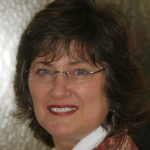Job Openings: Good Pay, Qualified Candidates Only
 On Thursday, September 11th, I attended a meeting at the new NCWorks Career Center in Boone. Around the table were 18 business people, educators, folks who work with job seekers, and other human services professionals from seven counties in the area. These people gather quarterly because they believe in the possibility of making a difference. This group, the High Country Workforce Development Board, oversees federal money that comes into our area to help workers get jobs, help businesses get good employees and help our area compete globally.
On Thursday, September 11th, I attended a meeting at the new NCWorks Career Center in Boone. Around the table were 18 business people, educators, folks who work with job seekers, and other human services professionals from seven counties in the area. These people gather quarterly because they believe in the possibility of making a difference. This group, the High Country Workforce Development Board, oversees federal money that comes into our area to help workers get jobs, help businesses get good employees and help our area compete globally.
After the meeting got underway, some tech magic allowed us to listen to a live voice, Jeff DeBellis in Raleigh, while watching the slides from his presentation sent over the internet. He was talking about the 2014 Employer Needs Survey that had recently been completed by the NC Department of Commerce. The facts were pretty eye-opening. At a time when so many people are having a hard time finding a job and particularly one with a livable wage, the research discovered that 45% of all businesses surveyed in N.C. had had difficulty filling at least one position in the past year. Further, a broad range of businesses had such challenges. Forty percent of employers with difficulties described the unfilled position as “critical” to their businesses. It took three times as long to fill such positions, if they were filled (sometimes the business outsourced or increased work hours of existing employees). The top three reasons given for the mismatch were applicants lacking work experience, educational credentials or technical skills. You may read the full text of this intriguing report here.
In the Q&A after the slides, Mr. Debellis fielded a question from Dr. John Boyd, president of Mayland Community College, about a chart showing ten reasons for hiring difficulties. One of the ten: 10% of the applicants have difficulty passing a drug test. Dr. Boyd’s point was that anecdotally he understood the rate was higher than ten percent. The employers around the table seemed to agree. Dr. Dan Barron, an area regional library director, offered the observation that maybe applicants who think they will not pass a drug test are not applying for jobs that require one, therefore skewing the lower ranking of the drug issue impacting hiring. No doubt this study shines a light on many important issues that affect our area’s workforce.
Our Board is charged with attacking our skills gap. In fact, Congress recently passed a bill pretty much declaring local boards like us across the nation responsible and are developing guidelines for evaluating us on whether the federal dollars we receive are addressing the skills gap and similar metrics. It will be a while before we know what this new law means exactly but more importantly we have communities with significant problems around jobs that need addressing NOW. No single organization can solve anything but people in communities working together can.
We are all personally affected by family and neighbors who can’t find a job, concerns about raising children who will have to leave the region for career reasons, long-term employment issues that stress families in many different ways; vexing tax issues created by shrinking workforces and more complex human services. Further, it is not realistic to attract new industry if we do not maintain a vibrant workforce.
So, as a symbol of learning new technical skills and getting out of my comfort zone, I am going to do something I have never done: I am going to send a tweet! It will be under the hashtag #HighCountrySkillsGap. I invite economic developers, educators, employers, employees, parents, students, retirees, everyone to chime in on this important topic. Maybe tweeting will be a new experience for you too. This conversation will also be happening in different venues but this one, the one where many voices can be heard (with minimal time investment), has the potential to be the most valuable one of all. Many different perspectives can only help. Join in and be heard!
Rhonda Herman, Chair – HCWDB
Tags: High Country News


